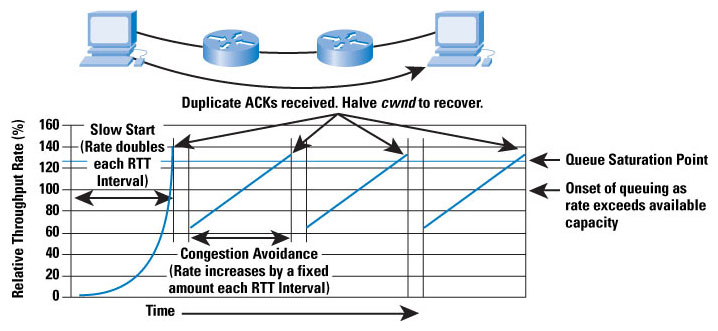
Now that I'm less than 2 weeks from quitting work and moving away from Alaska, I've realized that this is the longest-held job of my life: roughly 3 years and 9 months. Of course, no bank will recognize it as a 'permanent' position, as it's a federal SCEP (student career employment position)... and there is the question of of how many months I TECHNICALLY worked, since they allowed me to work part-time when school was in session... but overall, it's the longest job I've every held. Between NPS, USFS, and USACE, I think I've now worked a total of 5 years for the feds.
I think, if the whole academia thing doesn't pan out, I may return to the feds. Private contractors may make a hell of a lot more money, but the benefits aren't as good and the work isn't as steady. And, although the bureaucracy often makes me want to run screaming out the window, I'm beginning to realize that there are very few employment opportunities where you can avoid it.
Hopefully by the time I'm done with school (in another 5 years) the federal hiring freeze will be over.

I managed to survive four years at my last job. And by "survive," I mean I actually had a pretty good time mostly learning/hacking/doing what I enjoy with the occasional experience that was less than ideal.
My recent job switch was a bit of a risk. When I first came on to my previous position, it was intended to be an interim position until I could get back to what I "really wanted to do" (which is application development and design). A few months after my starting on Government Hill, the economy cratered, drying up all of the federal projects that had been given 8A precedence to the development industry in town. It was... worrying, to say the least. However, I was learning an incredible amount, as well as getting the opportunity to occasionally do the development-type things I enjoy. It was wearying, though, being in a support position where people would get angry at you for things outside your control, or for things that were in no way your fault (other than the fact that you were the first person to pick up the phone).
The experience, however, did help me. Doing things painstakingly, archaically, and to the utmost level of paranoia, now makes me sound like a grizzled veteran at work, chain smoking a pack of cigarettes while swapping war stories (as applied to the IT industry, extrapolate from there). I hope academia treats you well, teaches you lots of things, and gives you good war stories to relate upon your return. And that whatever opportunities you find are lucrative and beneficial.
But more importantly, given what opportunities you have, I hope you guys do return. :)

"What was that? I thought you liked manatees."
"I did before I understood them."
http://basicinstruc...ering-opinion.html (basicinstructions.net)

Today I had a nice conversation with a very confused man in my government issued purchasing credit card. Why had I spent almost $500 on a website called yesasia.com? Well because we have a large Asian immigrant population and it was one of the more legitimate choices for websites to sell a large variety of CDs and DVDs in Japanese, Mandarin, Thai, and Korean.
And yes we did buy the Gangnam Style CD.

Well, to be perfectly fair, the isolated sample set we're working with is ahead of the curve (or precociously committal), as the average age of first marriage in the US in 2010 (factfinder2.census.gov) was ~28.2 for (straight) men. The gays still get a pass, so I suppose there's always that "out" (pun intended. ha!).

Written by a Kid (www.youtube.com), Episode 1
Starring Dave Foley, Kate Micucci, Joss Whedon, and others.

It is... really frustrating to have idkfa blocked at work. Made even worse that I get emails with an excerpt from my subscriptions with only the first bit of what anybody's saying.
I must find a way to fix this.

and a quick wikipedia search for the pringles cantenna yielded the WokFi, which is pretty much awesome. I'm so behind when it comes to tech stuff.

There are easier ways. The issue is that the firewall we use has a "URL categorization database" that blocks/doesn't block based on category. A month before I got on, they put "Games" as a blacklist category. I assume for its game-related name origins, idkfa is in that category. Its incorrect placement, and my inability to appeal the firewall manufacturer's categorization for idkfa is what bothers me.


It's happened again, like most annual celebrations. Today is Katy and I's 9th wedding anniversary. I would have to say that every year has gotten better and I look forward to all the years we still have. A big thank you for all the friends who were there 9 years ago and are still around today.
I know she probably won't see this here but I'd rather make my post on idkfa than on facebook. The above picture is of one of our few real going out dates since Deacon was born that we had two weeks ago. We were probably the only couple, or anyone really who did not feel the need to take the cheezy ass props into the photo booth. I think this pretty much captures how we roll.

Last night, Dave and I saw The Dark Knight Rises. It was an amazing film and the entire time I was beside myself with the literary references. By the end, all I could do is sputter, "wow, dickens, french revolution, etc." Thus followed 20 minutes of me gushing in book nerd heaven to Dave, outlining the entire plot of A Tale of Two Cities, and the basic history of the French Revolution (including a side bar about The Marquis de Sade, his role in the revolution, and one of my favorite plays, Marat/Sade). This article (www.slate.com) is a pretty good summary of most of the parrallels. Also it points out Kafka! I love Kafka and can't believe I didn't catch that. What I'm saying is it was a great mix of comic book, action, great story, literary and historical allusion.

Man, after reading the intro and watching this video, I want to meet this girl. (www.youtube.com) I wish more people had the courage, humor, and spontaneity to do videos like this. So much fun.

In TCP (Transmission Control Protocol, which controls about 50% of all Internet traffic) has an interesting mechanism embedded within it.
The protocol itself is designed to guarantee intact delivery of data over unreliable mediums (bad devices, bad wiring, etc.). It can detect dropped packets and malformed packets, and takes it upon itself to retransmit in the case that these are detected. It is also designed to automatically deal with network congestion, should the situation arise, but it does so without talking to any of the devices in between.
It does this by slowly increasing the "window" of packets it has that are en route. This means that, at the beginning, it will transmit 10 packets, and then wait for acknowledgement from the other end before sending anything further. As that window size increases, the amount of packets en route increases, and the overall throughput of the connection increases because the sending host is no longer waiting in between transmissions.
However, at some point, the connection runs out: either you exceed the capacity of your wire, or a device in between you and your destination decides to limit you (this is how your Internet connection is limited to a certain speed, your modem will start dropping packets if you exceed a certain rate). TCP assumes that this is caused by "congestion," and shrinks the transmit window to contain less packets (and also slowing down your bandwidth). It then starts to slowly increase the number of packets back up again, until it is inevitably rate-limited and it drops back down.
It looks a little like this:

The reason I bring this up is that today was the first day of work at my new job. And TCP congestion control was what I was thinking about because that would be exactly how I hold conversations with other geeks: talk about increasingly geeky shit until somebody's eyes gloss over. Then back off a bit, and then slowly ramp back up.
Sort of a nerd handshake. Or nerd chicken. But in the end, information is communicated, and you establish a clear level on which to communicate with people.

In an effort to completely legitimize my entertainment ventures, I think I'm going to try out Amazon Prime (free month trial). This is primarily so I can continue watching Enterprise without getting a Netflix account ;)
Still debating whether $79/year for Amazon Prime is worth it, though. They have plenty of TV shows, kindle lending library, and free basic shipping to AK. Definitely not as good as for the lower 48 due to the latter point (no free two day shipping!), but I think I could get $79 worth of the year... I think.

A business idea I had, but first a few things:
Thing 1: I've talked about the subject of women in computer science a little bit before. Doesn't make me an expert on the subject, but the paucity of women in the computer and overall engineering fields is unfortunate and confusing to me.
Thing 2: Living in Alaska, geographic distance from everything else excludes us from a number of privileges, one of which being convenient and expedient shipping. It is expensive, time consuming, and in some cases impossible due to the fact that some businesses refuse to ship to Alaska. While online shopping is often still the way to go depending on the product and the need, we don't have the flexibility in terms of quick shipping options, or quick turnaround on return items.
Thing 3: We have 8-9 months of winter, during which we have record numbers for movie watching and eating out for our population base. Part of that indoors crowd are the computer geeks, specifically those that are the professionals, the hobbyists, gamers, or just designated family computer repair-person. There are a few, small email groups, but to my knowledge there isn't a physical commonplace for these people, nor is there a business that caters to the mid-to-higher end of computer hardware and support. Best Buy doesn't count, as they are much less centered around repair and more about retail, plus their target demographic is considerably less technically savvy. To put it short: there is not a Boscoes equivalent for computer people (even of Boscoes people likely intersect computer people with a high hit rate).
Thing 4: I can't definitively say that it is unique to Anchorage or Alaska, but I have not seen the "coffee shack" trailers anywhere else I've traveled. In terms of safety, from my sister's own anecdotal stories, to recent events, these are terrible places to work. Furthermore, for these coffee shacks, and similar businesses (see: Great Harvest Bread Company, any clothing store), they have fairly obvious and one-sided hiring practices when it comes to choosing employees. And in terms of doing business, that is their prerogative: young, attractive women attract customers, get better tips, and have more chance of repeat patronage and continued brand loyalty than anyone else. However, it's hard for me to see how this benefits the employees, particularly in the case of the coffee shacks. While I had an opportunity for a programming internship in my mid-teens, my sister was learning to be a barrista (which has nothing to do with her career now, and may have been her choice over other things at the time, but I'm bringing up the difference in opportunity, not the later career choices).
Thing 5: Computer literacy is a commodity. Computer repair shops around Anchorage, while mostly honest, are not impartial in their support, and it is not in their best interest to impart knowledge. Again, back to business prerogative, but mostly in terms of avoiding the long shadow of legal liability.
My business idea is in three parts:
I like this idea for a few reasons:
There's at least one, very real problem with this that I'm not sure how to solve. If indeed the community this type of business would cater to thrives on the dispersing of computer knowledge and overall computer literacy, that knowledge would have to come from somewhere. And unfortunately, that knowledge doesn't come cheap. The reason that good, consumer computer support is often so poor is because the folks with the expertise to make a place like this work wouldn't work for the wages this would be able to pay. Somehow, the mentorships and the expert-level knowledge would have to be on a volunteer basis.
Thoughts?

Interestingly, the Click and Clack Brothers of NPR fame had a DIY garage back in the 70s, as alluded to in this (articles.latimes.com)article that worked very much like this concept. It evidently morphed into a full service shop along the way. Basically, not everyone has the special wrench to pull out a steering column, and they'd rather pay someone 60% of the cost of that wrench to rent one for an hour. Along the way, there were guys in the garage who could help out with advice on the best method for disassembly / reassembly / etc.
This also has the distinct feel of a Makerspace (seattlemakerspace.wordpress.com), which has gained some prominence in the last few years. It's very expensive to have a 3D printing machine in your own home, but it's not so bad if you spread the cost over 50 dudes who all want to print their own Settlers of Cataan tiles and have a membership to the shared workspace.
Ultimately, though, these ideas all seem to orbit around the concept of a Cooperative, which is a time-tested, mother-approved business model for things like electrical power distribution, grain storage/sale, etc. The trick to success, it seems to me, would be the skill to identify your target audience and then build sufficient cohesion to keep them from imploding until some commercial success can be seen. That, however, seems to be the crux of most successful businesses, regardless of the venture.

I would imagine it's because the utility of owning your own isn't precluded by the cost. If I can spend 200 bucks and get a shitty electric lawnmower that prevents me from having to deal with my asshole neighbors, I'm going to do it.
If I want a laser engraver, four axis CNC mill, and a lathe, I'd be a helluva lot more willing to put up with other people's crap if it only cost me 45 bucks a month for a membership to the shop.
I suppose there's some break over point where the cost of the device, its utility/convenience, and its inherent specialization provide enough incentive to distribute its cost and availability over a larger group. Successful businessmen would figure out what that line is and capitalize on it. Engineers figure out how to live without it or how to make one on their own.

You're right, if you're looking to spend less than $500 overall on a low-end desktop, you'll probably never be able to build something that isn't unreasonably outdated compared to the retail options at a similar price point. Grabbing the latest off-the-shelf model from Walmart is likely the easiest thing.
Building reasonably performing computers is another thing. My worry is the following: there is almost no substitute for live testing when it comes to physical hardware. This is because unless you replicate make, model, OS patch-level, and driver versions exactly there is very little guarantee that the performance or reliability of a given configuration will be what it you read it should be online.
There are sites like these guys (www.hardware-revolution.com), who do a great job offering mostly-tested full builds, with mostly-tested alternatives depending on your end goals (power consumption, noise level, etc.). However, the difference between component A and the slightly more expensive component B might be 5% improvement, or 20%, or one might be completely at odds with the sound card and corrupt the hard drive on a weekly basis (true story).
Components themselves might not range into the industrial laser-cutting price range, but if you make fairly simple mistakes, you can easily misspend $2000 on something that either doesn't work, or that you aren't happy with for the price you paid.

A large number of libraries lend tools for just that reason. Some are public libraries that offer that as one service, others are specific tool libraries.
I'm cheating and linking to the wiki list of tool libraries.
I also know of a public library that lends out cake pans (www.ashton.lib.ia.us) to patrons for specialty birthday cakes. That certainly makes more sense than what my mother did, which is to buy a new cake for each birthday (3 birthdays a year = a cabinet full of specialty cake pans each used once).
These models can work. Often they work under the umbrella of a public library (which is a type of cooperative), but they can work.

To supplement my earlier post:
I think this could work perhaps as a community project, but not a business. When I was in Seattle, there was a volunteer organization working out of a shed to provide bike repair guidance and tools to people. They would also accept (mostly busted) donation bikes, repair them, and sell them for cheap to keep the system going.
I would imagine that this could work as something like that, but with a bit more emphasis on teaching. I'm not sure how you could get the "try before you buy" to work, in this context though.

I like the "build new bikes out of busted old ones" concept, as applied to computers. Hell, I do that on my free time anyway, and my grandmother is currently on her longest elapsed time between complete computer meltdown. That'd be a good way to supplement income.
Also, though I haven't had a lot of luck there myself (being of average height, and male), we have a similar bike Co-op here. (www.offthechainak.org)

Thought number one: I got a picture! And made my first post!
Thought number two: I spent most of my time at the last conference talking about digital literacy. Everyday at the library I help people functioning at a very low level of digital literacy to do basic life tasks that are now only available online (plane tickets, PFDs, tax forms, job applications, etc.)
I don't see too many people asking me for help who are at a middle to higher end level. I suppose I'm at a middle or middle-high level. It's hard to say because my friends tend to be very tech-savvy geeks that make me feel inadequate, but my coworkers and patrons believe I'm a goddess of computer technology. I would use this service, except that normally I crowd source these things to my friends, fiance, brother-in-law and google searches to resolve. Honestly my technology needs are few and far between, for a casual geek like myself, it might not fully pay out.
However it is a very cool concept with interesting potential. The problem is casual geeks like myself. I like new gadgets, but don't invest that often in them and don't work the gadgets I have too strenuously. (My laptop spends 90% of its time paying bills, downloading knitting patterns, storing documents, and uploading pictures of knitted projects. I know how to make it do all that.)

Great success! Thanks for posting.
And you've got a point. As far as expertise, Google or sites like Stack Overflow (stackoverflow.com) would be our biggest competitors. If we were to, say, graph "necessity of computer help" versus "computer expertise," we'd probably see that as people learn and master basic tasks, their need for help declines. There's even a point where it probably drops to zero as people's confidence and self-sufficiency allow them to learn as they solve problems.
There is a point, however, where you've mastered N+1 programming languages, dreamt of database schemas, and have your internal home network's security rivaling that of numerous corporate entities. And you find yourself staring at the blank screen that was once your beloved home computer, wondering when the last time your automatic backups kicked off. In some cases, you can try to troubleshoot the issue yourself. And if you don't happen to have a closet full of spare parts, and you live in Alaska, you've got at least 2 weeks before you can get your precious back.
To quote the Firefly Episode Safe:
"Sometimes you just need a doctor."
We aren't saving any lives, but we're all at risk for hardware failure. There's also the case that, at the very far end of our "necessity of computer help" curve, you start to get into strange, obscure territory, that defies Google searches and requires a human being. Such a thing I wrote about a while back, where the departure of Title Wave's main expert has left them with a non-functioning online presence for years. IT consulting, particularly development consulting, is ungodly expensive, and as far as I can tell, there doesn't exist any community for a place like Title Wave to fall back on should they need access to people at the far end of the curve.